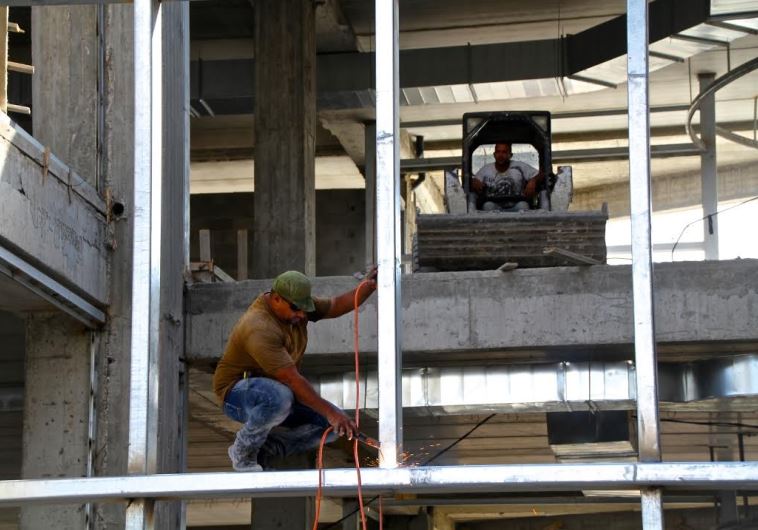Israel looks to Ukrainian labor to fill construction shortage
The constant influx of cheap foreign labor is one reason that Israel's construction sector was among its least productive.
 Construction workers build new mall at the Gush Etzion junction in the West Bank(photo credit: TOVAH LAZAROFF)Updated:
Construction workers build new mall at the Gush Etzion junction in the West Bank(photo credit: TOVAH LAZAROFF)Updated: